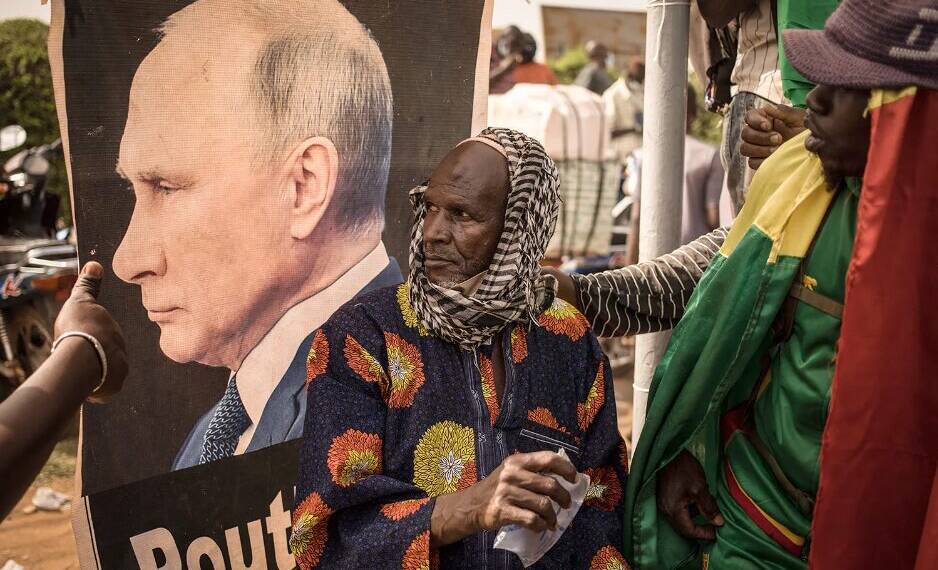This weekend’s significant ambush of rebranded Wagner forces in Northern Mali by Tuareg separatists has thrust this ethno-national conflict into the spotlight of Russia’s attention. Moscow had dispatched Private Military Companies (PMCs) to Mali as part of its “Democratic Security” initiative, aiming to assist the central government in protecting its democratic model from Hybrid War threats, including external exacerbations. Previously, this conflict was often oversimplified as a proxy war between Western and Russian interests in the New Cold War context.
The latest development may prompt a re-evaluation of the conflict’s origins and potential solutions, highlighting the complexity beyond initial perceptions. Mali is central to the newly established Sahelian Alliance/Confederation with Burkina Faso and Niger, seen as a catalyst for regional multipolar processes. Russia has strategic interests in aiding these nations against separatist (Tuareg) and terrorist (radical religious) threats.
The current situation risks a convergence of separatist and terrorist threats, reminiscent of the post-NATO Libya conflict which led to a large-scale but ultimately unsuccessful French intervention from 2013 to 2022. The trigger for this latest escalation was the Malian government’s January decision to rescind the 2015 Algiers Agreement, which had granted partial autonomy to the Tuaregs. This agreement had been mediated by Algeria, a traditional partner of the Tuaregs.
Last year, Russian PMCs assisted Malian forces in retaking the Tuareg stronghold of Kidal, causing panic among the separatists and prompting them to seek support from Algeria. This was perceived by Bamako as undue interference in its domestic affairs. Additionally, Russia suspected that the separatists were once again aligning with religious extremists and possibly receiving Western support, with new evidence suggesting potential involvement from Kiev.
The potential role of Algeria in supporting the Tuaregs has been somewhat overlooked. Algeria, a close partner of both Russia and Mali, uses its support for the Tuaregs to maintain influence in Mali and control the situation to prevent separatism from spilling over its borders. While Algeria’s interests diverge from those of Moscow and Bamako, this does not imply collusion with the West, Kiev, or religious extremists.
The conflict is multifaceted, involving various actors with overlapping interests in decentralizing power in Tuareg-inhabited areas. The West, religious extremists, and Algeria each have different motivations for supporting decentralization, while Bamako and Moscow favor a centralized state. This complex dynamic is illustrated by four key news items highlighting the Algerian-Malian security dilemma that has resurfaced with the latest Tuareg conflict:
Given these developments, Russia faces a dilemma: whether to support Algeria’s push for decentralization by reviving political negotiations, or to back Mali’s preference for centralization by increasing PMC-driven military support. Supporting decentralization might erode trust within the Sahelian Alliance/Confederation, while advocating centralization risks Algeria aligning with the West against Russian interests.
Algeria’s military depends heavily on Russian supplies, and relations with the West are complicated. Moscow is unlikely to halt arms exports to Algeria, as this could alienate other partners, and the West might use any cooperation to reset its ties. Similarly, the Sahelian Alliance/Confederation, transitioning from French to Russian arms, could turn to Turkish PMCs if Russia pushes for peace talks over military action.
Decentralizing Northern Mali by granting the Tuaregs their previously promised partial autonomy is viewed by Algeria as essential for managing the conflict and preventing its recurrence, which threatens to spill over its borders. Conversely, Bamako sees restoring centralized control over the north as crucial to preventing Western destabilization efforts, a view shared by Moscow.
Each party holds legitimate but conflicting interests, and the trust deficit impedes compromise. Both sides believe they can achieve greater gains, potentially even a decisive victory, by continuing the conflict rather than returning to political dialogue. The origins and socio-political dynamics of the Tuareg conflict bear similarities to the Kurdish conflicts in Iraq and Syria, which also lack military solutions. Iraq granted autonomy to its Kurdish population, and Syria may soon have to follow suit.
These separatist conflicts are driven by the perception of second-class status among ethno-national groups within their respective states, and attempts at forcible centralization have historically led to renewed rebellions. This ongoing friction provides opportunities for external actors, both state (the West) and non-state (religious extremists), to exploit, perpetuating instability.
For sustainable peace, constitutional autonomy for groups like the Tuaregs and Syrian Kurds appears necessary. Russia must consider integrating military and political strategies to resolve the conflict, or risk becoming entangled in a prolonged quagmire.








